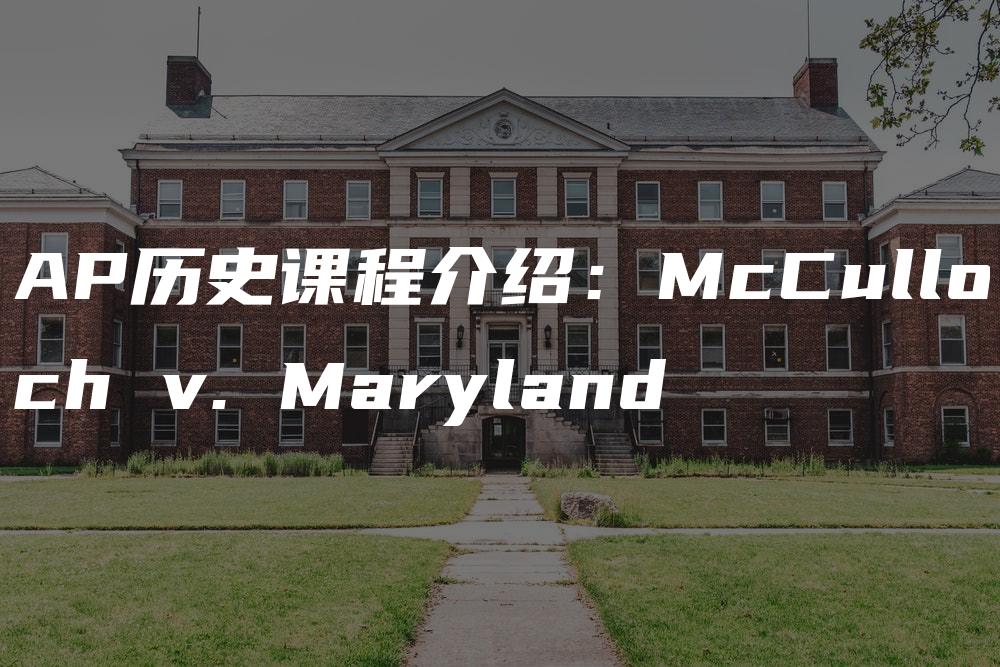AP历史课程介绍:McCulloch v. Maryland
英思德小编为大家整理了AP历史课程学习:McCulloch v. Maryland的有关知识,供大家参考,希望对大家有所帮助!

McCulloch v. Maryland, 17 U.S. 316 (1819), was a landmark decision by the Supreme Court of the United States. The state of Maryland had attempted to impede operation of a branch of the Second Bank of the United States by imposing a tax on all notes of banks not chartered in Maryland. Though the law, by its language, was generally applicable to all banks not chartered in Maryland, the Second Bank of the United States was the only out-of-state bank then existing in Maryland, and the law was recognized in the court’s opinion as having specifically targeted the U.S. Bank. The Court invoked the Necessary and Proper Clause of the Constitution which allowed the Federal government to pass laws not expressly provided for in the Constitution’s list of express powers provided those laws are in useful furtherance of the express powers of Congress under the Constitution.
This fundamental case established the following two principles:
The Constitution grants to Congress implied powers for implementing the Constitution’s express powers, in order to create a functional national government.
State action may not impede valid constitutional exercises of power by the Federal government.
The opinion was written by Chief Justice John Marshall.
上文整理了AP历史课程介绍:McCulloch v. Maryland的信息,希望文章里的这些信息考生们能认真的阅读,如果是想再了解其它方面的信息,请点击咨询英思德精英国际网站或复制【IAC0627】添加老师微信咨询!

扫码关注【英思德OSSD | AP | ACT | 国际竞赛】公众号了解更多
最新文章
© 2025. All Rights Reserved. 黑ICP备2022002155号









